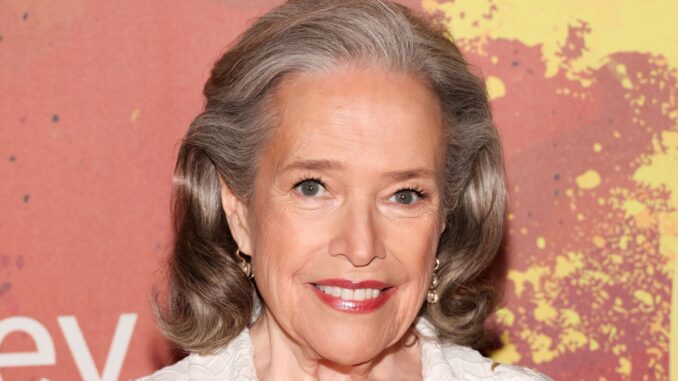
Kathy Bates, a force of nature on screen, commands roles with a gravitas and intensity that few can match. From the terrifying Annie Wilkes in Misery to the resilient Dolores Claiborne, her name is synonymous with characters that burrow deep into the psyche. So, when the whispers began that Bates had a turn on the folksy, familiar procedural Matlock, starring the beloved Andy Griffith, it conjured an image that felt, at best, incongruous. It was a casting choice that, for many, and evidently for Bates herself, wasn't what was expected. Yet, as with all true illustrative tales, there was a twist at the end that changed everything.
One can imagine the initial anticipation of a performer like Bates approaching a role on Matlock. Her career trajectory had been marked by a relentless pursuit of challenging, often morally ambiguous characters that peeled back the layers of human dysfunction and resilience. She sought complexity, nuance, and the raw nerve of emotion. Matlock, on the other hand, presented a world of comforting predictability: a sharp but affable lawyer, clear-cut cases of justice, and a gentle rhythm that rarely strayed into the dark corners Bates typically explored. It was, by all accounts, a show designed to soothe, not to provoke. Her expectation, likely, was for a standard guest spot, a professional obligation, perhaps a brief detour into a different, less demanding acting style.
The reality, as Bates reportedly discovered, indeed wasn't what she expected. It wasn't about the script being poorly written or the cast being unprofessional; it was the very essence of the show itself that presented a stark contrast to her established artistic landscape. The measured pace, the clear demarcation of good and evil, the absence of the raw, exposed nerves she usually inhabited – it all likely felt like a different universe, one where the deep, internal struggles she typically portrayed were smoothed over by the imperatives of episodic television. It may have felt like a simplification, a step away from the rich, intricate tapestry of character work she prized. The role, whatever its specific contours, likely held less of the challenging gristle she typically sought, leaving her feeling that the experience, while perfectly amiable, fell short of her artistic anticipations.
But then came the twist. Not a plot twist within the Matlock episode itself, but an internal revelation, a subtle yet profound shift in perspective that reshaped her understanding of her craft and the very nature of storytelling. Perhaps it was a quiet moment on set, observing Andy Griffith's seemingly effortless command, or witnessing the dedication of a crew committed to delivering comfort and closure to millions of viewers each week. The twist was the sudden, humbling realization that there was a profound artistry in simplicity, a deep resonance in the dependable, and an immense value in a form of entertainment that offered solace rather than upheaval.
The twist wasn't about Matlock suddenly becoming a dark, complex drama; it was about Bates recognizing the immense power of what Matlock already was. It was the understanding that connecting with an audience doesn't always require tearing them down or challenging their beliefs, but sometimes, it means offering them a moral compass, a comforting presence, and the reassurance that justice, however idealized, can prevail. This epiphany wasn't just about Matlock; it was about the broader spectrum of acting, the different colors on the palette. It showed her that her formidable talent could be channeled not just into explosive drama, but also into the quiet authenticity required to ground a seemingly straightforward character in a world of gentle justice.
This twist at the end changed everything, not in terms of radically altering her career path, but in deepening her appreciation for the multifaceted nature of her profession. It broadened her definition of what constitutes "meaningful" work, demonstrating that artistic impact isn't solely reserved for the gritty and the intense. It proved that even in unexpected places, lessons can be learned, perspectives can be expanded, and the journey of an artist can be enriched by every detour, no matter how seemingly conventional. Kathy Bates's encounter with Matlock, initially a professional incongruity, ultimately became an illustrative testament to the unexpected wisdom found when we dare to look beyond our own expectations.
